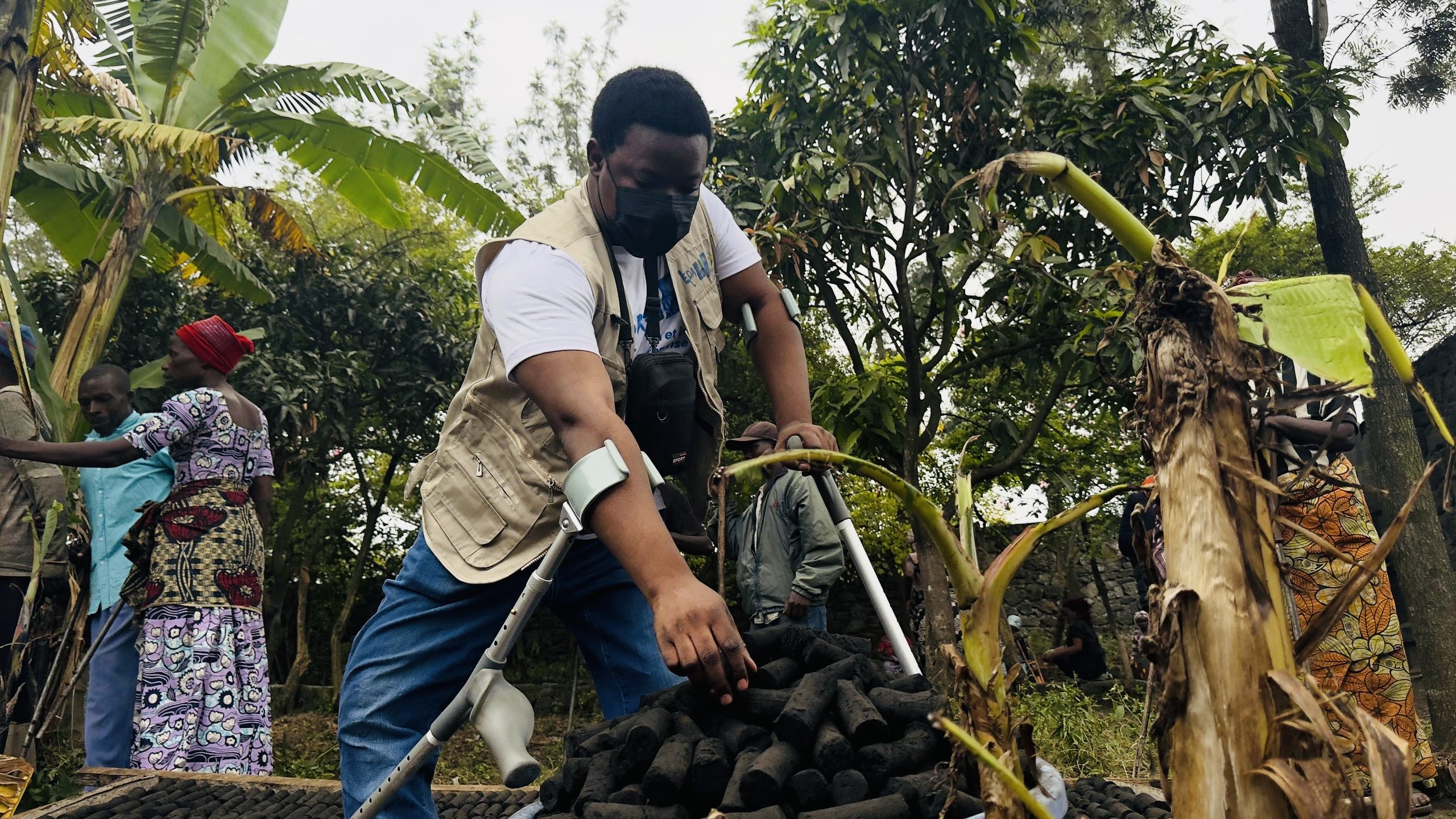
News
Disability in the Crossfire
Play audio version
In the DRC, Ongoing Conflict is Creating New Disabilities, Blocking Evacuations, and Shutting Down Inclusion Programs
September 21, 2025
Editor’s note: This is the second in our series on conflict and disability. As wars and political violence escalate across the Middle East, Africa, and Eastern Europe, we’re documenting how people with disabilities are being overlooked in humanitarian responses — and why inclusion is more urgent than ever.
Over 1 billion people have a disability worldwide, and more than half of that population lives somewhere impacted by conflict. Since the start of the war in Gaza, Palestine’s rate of disability has risen 60%. In Ukraine, over 300,000 people now have a disability because of the war with Russia. Ongoing wars and political violence are reshaping disability landscapes across the globe. Moreover, people with pre-existing disabilities are especially vulnerable in conflict zones and face barriers when evacuating or accessing aid.
In the Democratic Republic of Congo (DRC), internal displacement disproportionately affects its disabled population. Today, the United Nations High Commissioner for Refugees (UNHCR) estimates that 6.9 million Congolese people are internally displaced, 5 million of whom are concentrated in the eastern provinces of North Kivu, South Kivu, and Ituri. The current humanitarian crisis in the DRC stems from a long history of political upheaval and armed conflict that has intensified since the November 2021 resurgence of the Congolese rebel group March 23 Movement. The Rwandan-backed paramilitary unit, commonly referred to as M23, is the most prominent rebel force in the mineral-rich eastern regions of the DRC.
According to a 2025 report from the World Bank, roughly one-fifth of the country is controlled by M23 following its territorial gains. M23’s attacks on Goma in January and Bukavu in February led to the seizure of both cities and the forced closure of settlement camps in the area, causing the displacement of 237,000 people. The DRC is also home to more than 517,000 refugees and asylum seekers fleeing conflict in the Central African Republic, Burundi, Rwanda, and South Sudan.
Conflict Creates New Disabilities
“Some individuals have become disabled as a direct result of the conflict, such as [government] soldiers who lost limbs or hearing due to combat,” says Jacques Balolage, a Deaf nonprofit director and disability rights advocate. “Others were already living with disabilities and found themselves unable to flee quickly due to a lack of mobility aids like crutches, wheelchairs, or proper support.” He also knew individuals who lost their lives trying to escape because of a lack of assistance.
This cycle of violence not only creates new disabilities and hinders evacuation but also disrupts livelihoods and undermines projects aimed at addressing these challenges. Youth4Climate, an initiative led by the UN Development Programme (UNDP) and the Italian Ministry of Environment and Energy Security, has supported more than 100 youth-led projects across 52 countries to promote environmental solutions and economic development since its launch in 2022. Youth4Climate spearheaded a clean cooking project in Goma, utilizing clean energy methods to enable displaced people living with disabilities to produce their own food and sell it in local markets.
“But we have been obliged to stop the project,” says Sylvain Obedi, executive director of disability rights nonprofit Enable the Disable Action. M23 has seized the projects’ materials and products and demanded that everyone leave Goma. Those unable to flee are still in the rebel-controlled region.

In May 2022, the Congolese government passed Organic Law No. 22/003 to protect and promote the rights of people with disabilities, who account for roughly 18% of the DRC’s population. This law was a step toward putting into practice the UN’s Convention on the Rights of Persons with Disabilities (CRPD), which the DRC ratified in 2008.
But as former UNHCR senior field assistant John Luboya Kalonji notes, promising policies don’t always translate to action. And when they do, implementation may not occur uniformly due to limited awareness, inadequate resources, or conflicting policies. In regions like Goma, which has experienced nearly 30 years of conflict, the infrastructure is more developed and there’s a stronger humanitarian presence. That makes it easier to deliver more targeted aid. But in other parts of the country, it’s more difficult, Kalonji says. “It’s a new concept for them.”
Humanitarian Access Is Limited
“In more remote or unstable regions where insecurity is high and roads are impassable, humanitarian access is limited,” Balolage says. “The UNHCR and its partners may only be able to intervene sporadically or prioritize the most urgent needs,” often excluding persons with disabilities and other marginalized groups.
“It is still a big difficulty for authorities or government or humanitarian organizations to make a good decision which includes everyone,” Obedi says.

Although the UNHCR provides humanitarian aid to internally displaced persons in the DRC, its primary mandate is assisting refugees. As a result, support for those displaced within the country often falls short, leaving many, including people with disabilities, without access to services. As an example, a Deaf person seeking aid might be turned away if they can’t follow workers’ instructions without an interpreter, Obedi explains.
“We really encourage the UNHCR … to create a division of inclusion where displacement is happening,” Kalonji says. It can start with a preliminary assessment for disabilities or chronic illnesses, he suggests, that would allow for services to be adapted.
Stigma and Setbacks
Around 40% of the UNHCR’s donations in 2024 came from the US. In February, US President Donald Trump pulled funding from numerous UN organizations, including the UNHCR, as part of the administration’s freeze on foreign aid. Requested funds were withheld to “review and restructure” the refugee agency, Kalonji says. After this review, five DRC field offices were closed on June 30, including Kalonji’s office in northern Ubangi, where 18 people lost their jobs. In total, 199 UNHCR staff lost their positions in the DRC, leaving “people of concern without any help, including people with disabilities.”
With limited resources, existing relief efforts will need to work alongside other UN agencies, international NGOs, and grassroots organizations. Balolage founded nonprofit Equal Access Innovators (EAI) in 2024 to advocate for disability rights at the intersection of education equity, climate action, and inclusion. EAI also provides aid to people affected by conflict, including “emergency assistance rehabilitation for people with disabilities.” Though numerous community-based organizations advocate for accessible advancements, they often lack appropriate funding, Kalonji says.

A 2023 analysis of the DRC from the UN Partnership on the Rights of Persons with Disabilities (UNPRPD) cites “limited awareness of the Convention on the Rights of Persons with Disabilities” as well as insufficient political interest, budgets, and resource mobilization as the main challenges to achieving greater accessibility and inclusion. At a local level, existing cultural beliefs and stigma surrounding people with disabilities hinder progress. But education and advocacy can reshape perspectives and change the narrative to one where Balolage says inclusion is a mindset, no longer just an exception.
“Our vision is to have a Democratic Republic of Congo where people with disabilities can live independently,” Obedi says, “and where their human rights are understood and guaranteed by all.”
Lauren Salemo is a fourth-year journalism and environmental science student at Northeastern University.
News From the Global Frontlines of Disability Justice
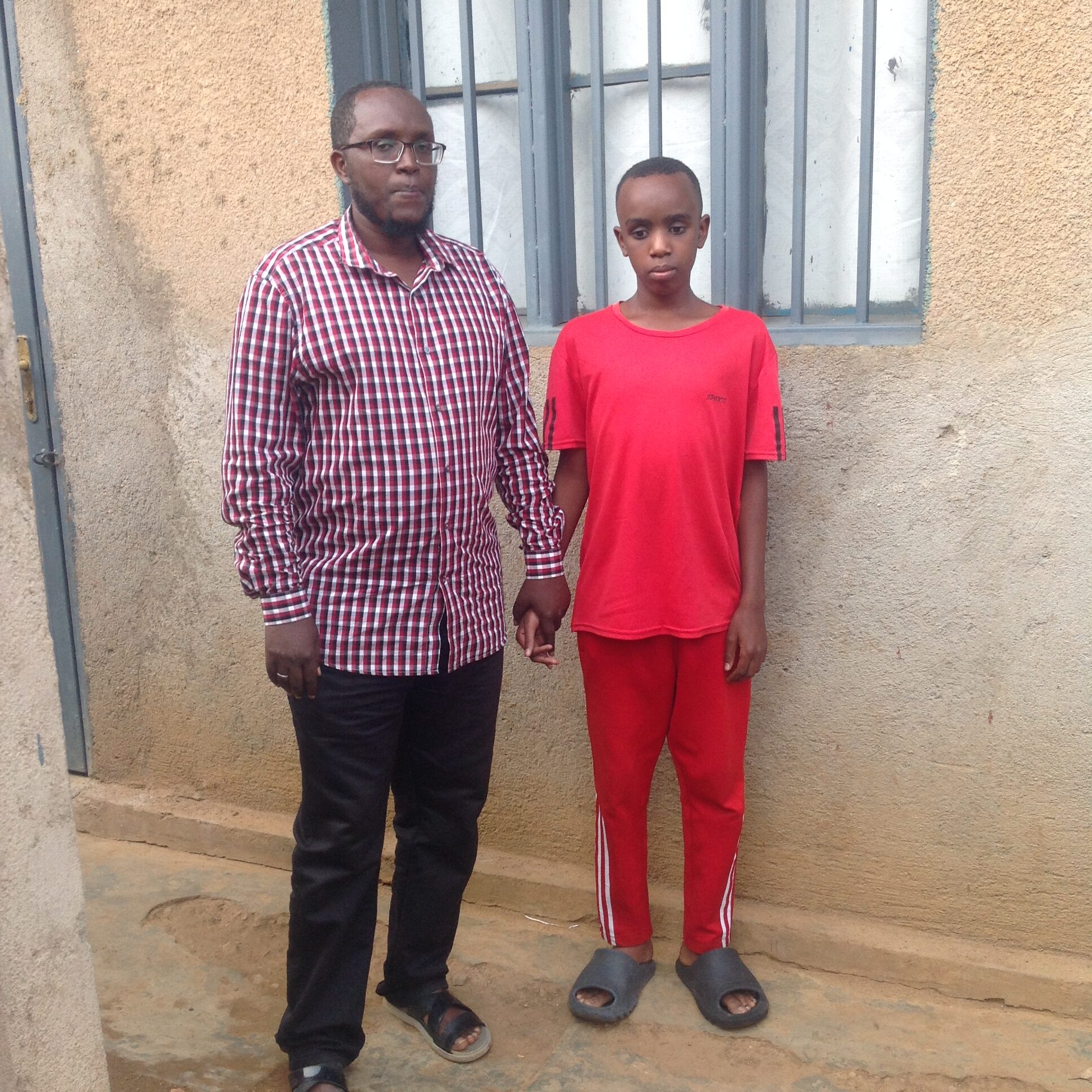
‘I Just Want to Walk Alone’
Fourteen-year-old Saifi Qudra relies on others to move safely through his day. Like many blind children in Rwanda, he has never had a white cane. His father, Mussah Habineza, escorts him everywhere. “He wants to walk like other children,” Habineza says, “He wants to be free.” Across Rwanda, the absence of white canes limits children’s mobility, confidence, and opportunity. For families, it also shapes daily routines, futures, and the boundaries of independence.
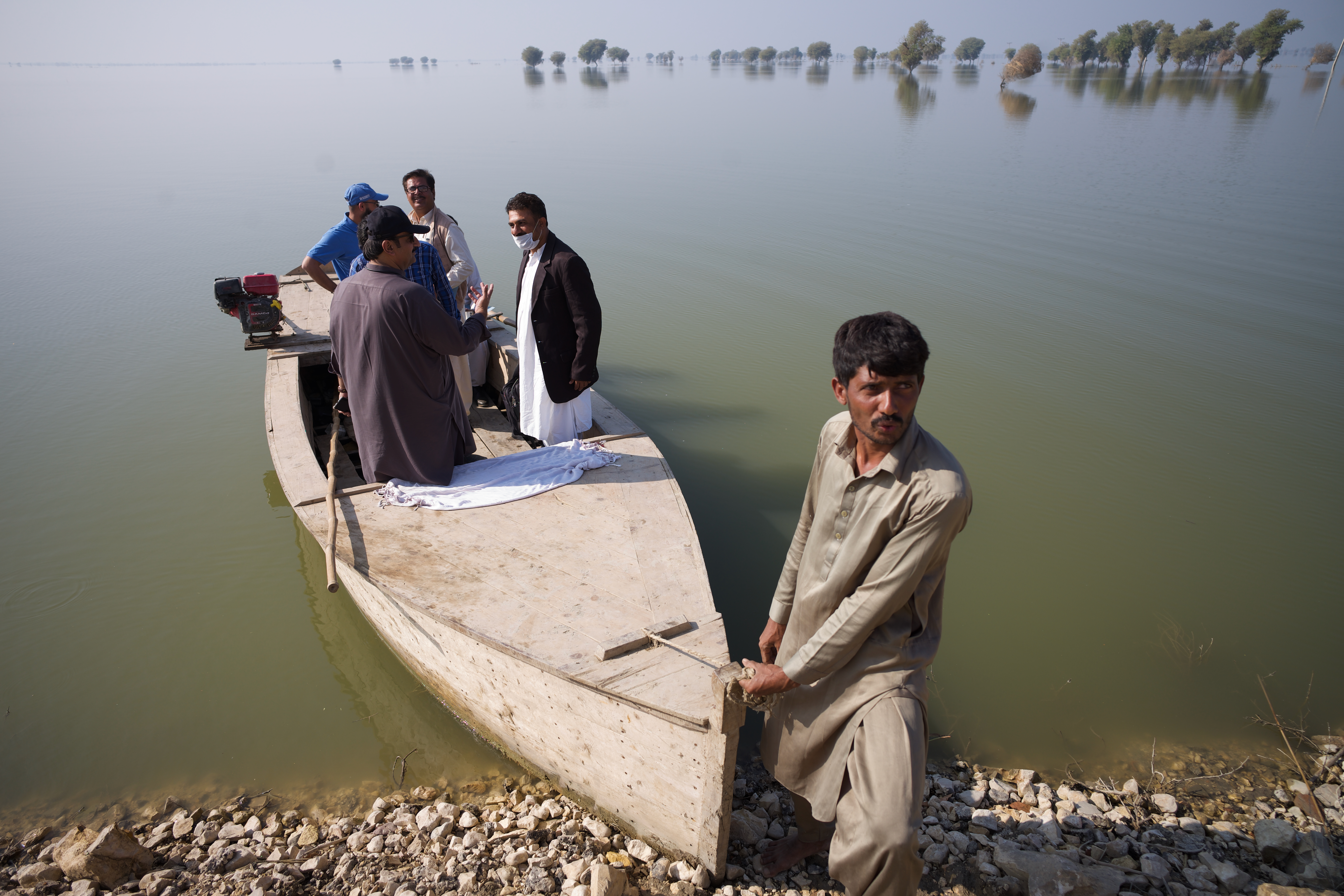
‘Evacuation Routes Are Meant for People Who Can Run’
As climate change and conflict intensify across Pakistan, emergency systems continue to exclude people with disabilities. Warning messages, evacuation routes, and shelters are often inaccessible, leaving many without critical information when floods or violence erupt. “Evacuation routes are built for people who can run,” Deaf author and policy advocate Kashaf Alvi says, “and information is broadcast in ways that a significant population cannot access.”
Read more about ‘Evacuation Routes Are Meant for People Who Can Run’
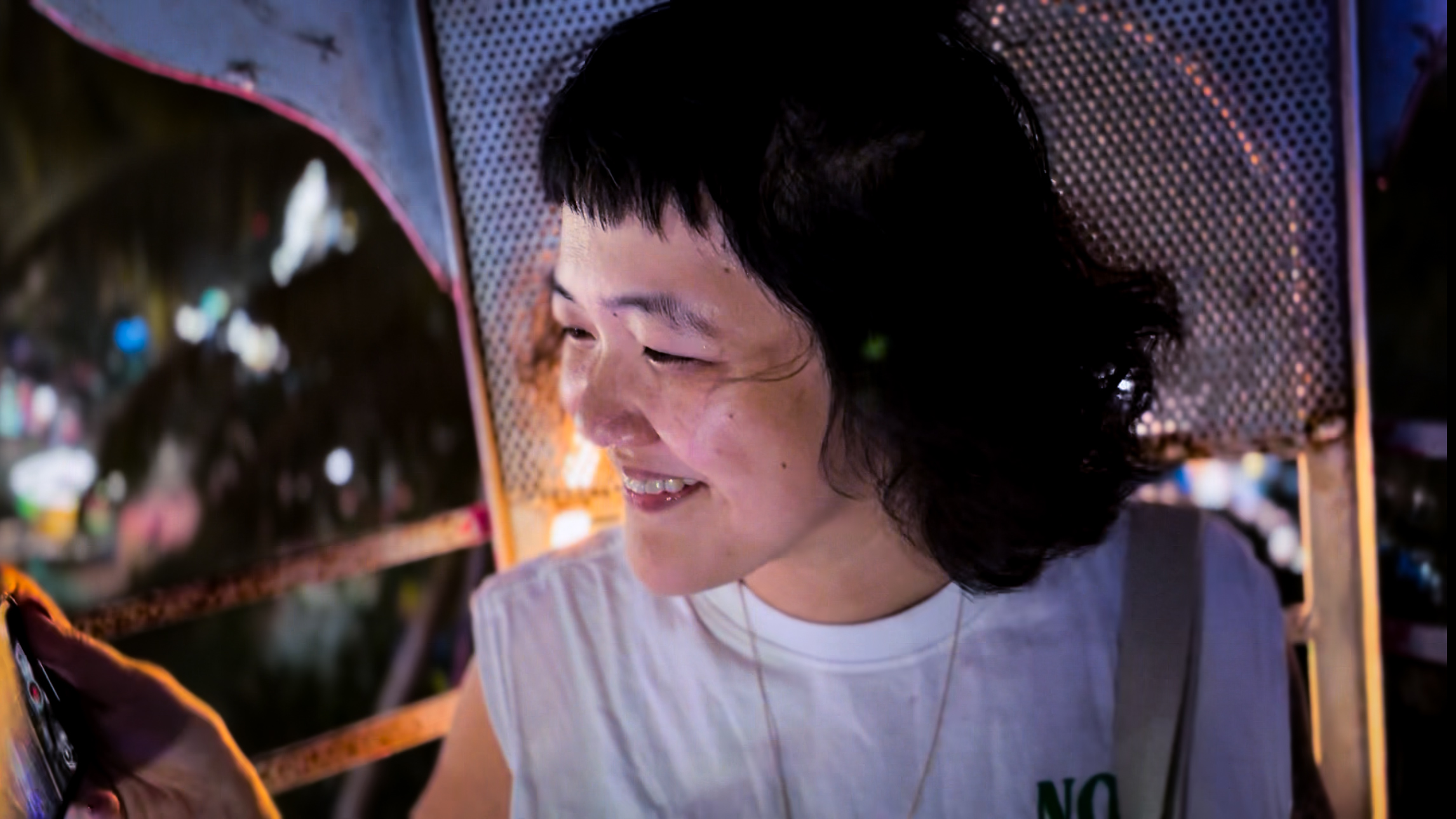
Autism, Reframed
Late in life, Malaysian filmmaker Beatrice Leong learned she was autistic and began reckoning with decades of misdiagnosis, harm, and erasure. What started as interviews with other late-diagnosed women became a decision to tell her own story, on her own terms. In The Myth of Monsters, Leong reframes autism through lived experience, using filmmaking as an act of self-definition and political refusal.
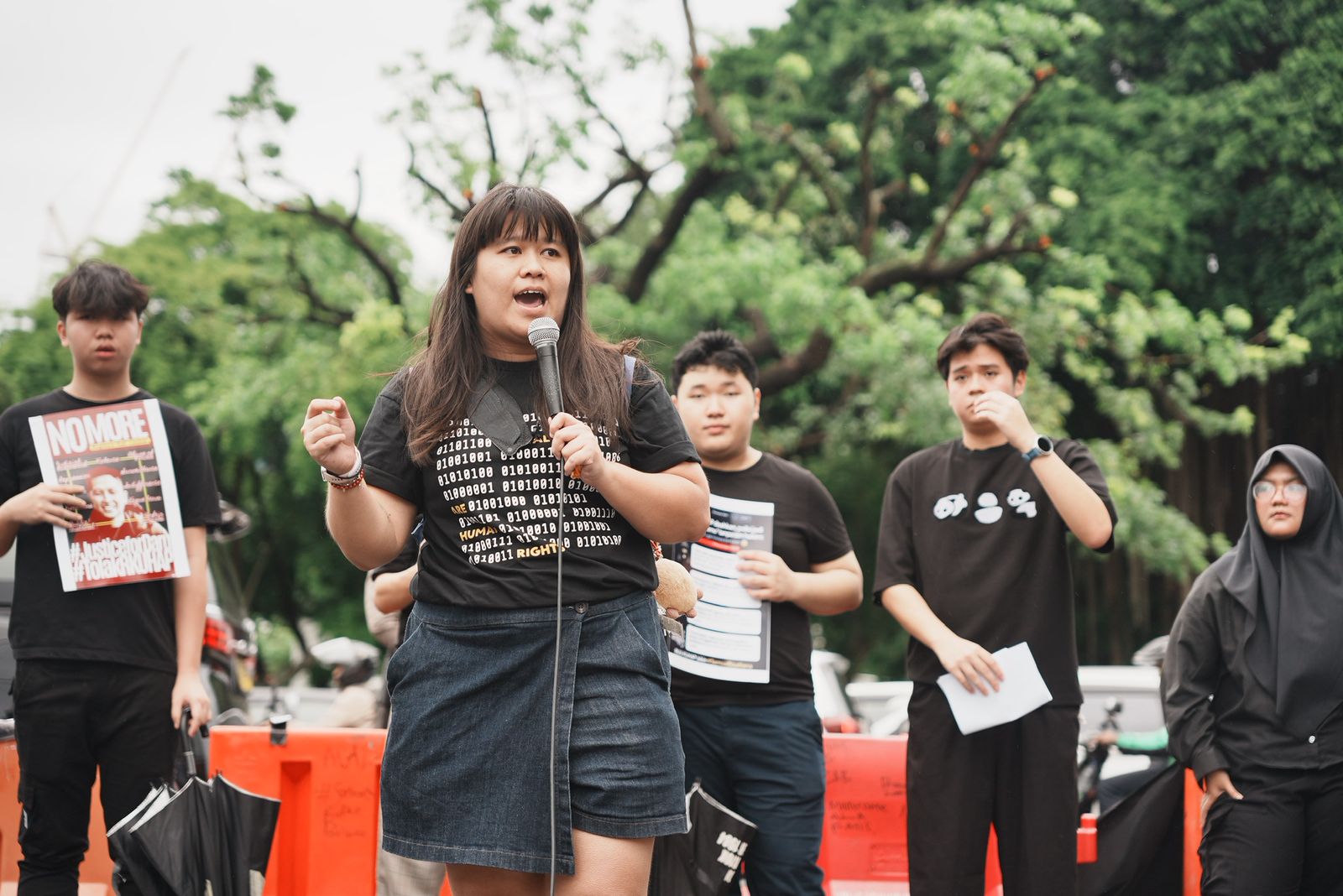
Disability and Due Process
As Indonesia overhauls its criminal code, disability rights advocates say long-standing barriers are being reinforced rather than removed. Nena Hutahaean, a lawyer and activist, warns the new code treats disability through a charitable lens rather than as a matter of rights. “Persons with disabilities aren’t supported to be independent and empowered,” she says. “… They’re considered incapable.”

Disability in a Time of War
Ukraine’s long-standing system of institutionalizing children with disabilities has only worsened under the pressures of war. While some facilities received funding to rebuild, children with the highest support needs were left in overcrowded, understaffed institutions where neglect deepened as the conflict escalated. “The war brought incredibly immediate, visceral dangers for this population,” says DRI’s Eric Rosenthal. “Once the war hit, they were immediately left behind.”
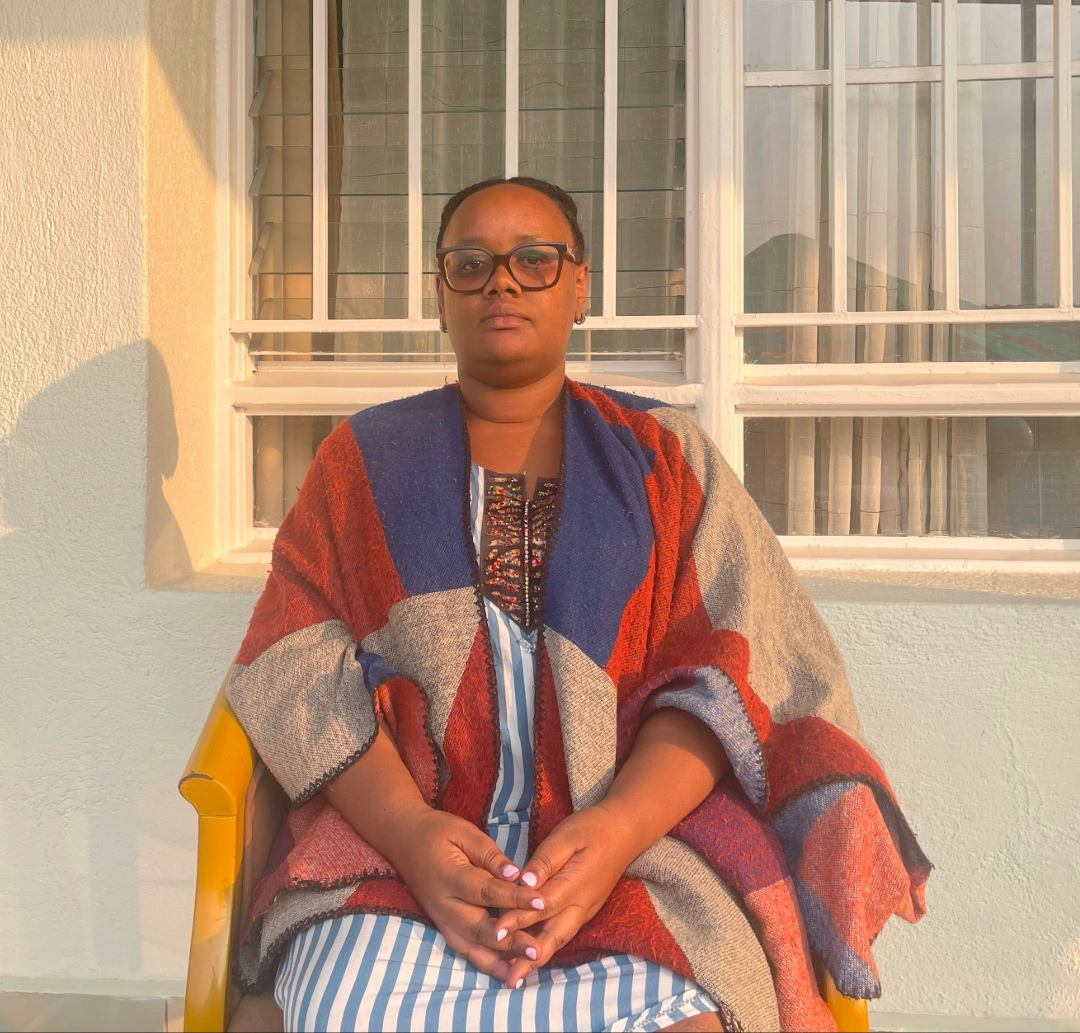
The Language Gap
More than a year after the launch of Rwanda’s Sign Language Dictionary, Deaf communities are still waiting for the government to make it official. Without Cabinet recognition, communication in classrooms, hospitals, and courts remains inconsistent. “In the hospital, we still write down symptoms or point to pictures,” says Jannat Umuhoza. “If doctors used sign language from the dictionary, I would feel safe and understood.”